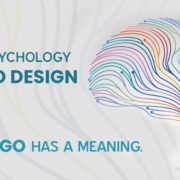Color Psychology in Logo Design
Colors can evoke emotions and influence human behavior. Regarding logo design, selecting the right colors is crucial as they represent a brand’s personality and values. A well-designed logo can capture attention, communicate a brand’s message, and establish a strong identity. By understanding color psychology, designers can create logos that resonate with the target audience and leave a lasting impression.
The Basics of Color Psychology
Before delving into the specific meanings associated with different colors, it is essential to understand the basics of color psychology. Colors can be divided into primary and secondary colors. Primary colors include red, blue, and yellow, while secondary colors are a mixture of primary colors. Additionally, colors can be categorized as warm or cool, each having psychological effects.
Primary Colors
- Red: Symbolizes passion, energy, and excitement.
- Blue: Represents trust, dependability, and serenity.
- Yellow: This signifies optimism, happiness, and creativity.
Secondary Colors
- Green: Conveys growth, health, and nature.
- Orange: Reflects confidence, vitality, and playfulness.
- Purple: Evokes a sense of royalty, luxury, and creativity.
- Pink: Represents femininity, romance, and nurturing.
Warm Colors
Warm colors, which include red, orange, and yellow, tend to stimulate emotions, create a sense of excitement, and grab attention. They can evoke feelings of passion, enthusiasm, and happiness.
Cool Colors
Cool colors like blue, green, and purple have a calming effect on people. They are associated with trust, relaxation, and creativity. Cool colors are often used to establish a sense of serenity and professionalism.
Red: Passion, Energy, and Excitement
Red is a powerful color that can get attention and evoke strong emotions. It symbolizes passion, energy, and excitement. Brands that want to convey a sense of boldness, urgency, or intensity incorporate red into their logos. Examples of famous logos using red include Coca-Cola, YouTube, and Netflix.

Blue: Trust, Dependability, and Serenity
A color associated with serenity is blue. It’s also a color that represents trust. It has a calming effect and is commonly used by financial, healthcare, and technology brands. Blue can evoke feelings of reliability, professionalism, and security. Examples of well-known blue logos include Facebook, IBM, and Samsung.
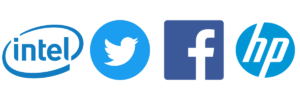
Yellow: Optimism, Happiness, and Creativity
Yellow is a vibrant color that represents optimism, happiness, and creativity. It’s a popular choice for brands that want to communicate a positive, joyful, and energetic message. Yellow logos can capture attention and create a positive and playful impression. Examples of successful yellow logos include McDonald’s, Snapchat, and IKEA.

Green: Growth, Health, and Nature
The color associated with growth, health, and nature is Green. It symbolizes harmony, freshness, and environmental consciousness. Brands in the food, wellness, and outdoor industries often use green logos to convey a sense of vitality and sustainability. Well-known green logos include Starbucks, Whole Foods Market, and Animal Planet.
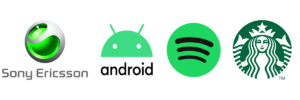
Orange: Confidence, Vitality, and Playfulness
Orange is a vibrant, energetic color that exudes confidence, vitality, and playfulness. It can create a sense of enthusiasm and excitement. Brands that want to convey friendliness, warmth, and approachability incorporate orange into their logos. Examples of successful orange logos include Amazon, Harley-Davidson, and Nickelodeon.
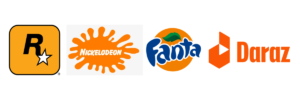
Purple: Royalty, Luxury, and Creativity
A color of royalty, luxury and creativity is purple. It evokes a sense of elegance, sophistication, and exclusivity. Brands that want to portray a sense of luxury and uniqueness choose purple for their logos. Examples of well-known purple logos include Cadbury, Yahoo, and Hallmark.
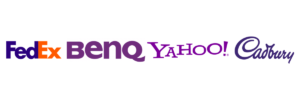
Pink: Femininity, Romance, and Nurturing
The color associated with femininity, romance, and nurturing is Pink. It represents softness, compassion, and tenderness. Brands targeting a predominantly female audience incorporate pink into their logos. Examples of successful pink logos include Victoria’s Secret, Barbie, and Cosmopolitan.
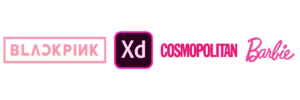
Black: Elegance, Sophistication, and Authority
Black is a color that symbolizes elegance, sophistication, and authority. It creates a sense of mystery, power, and timelessness. Many luxury brands utilize black in their logos to convey a sense of exclusivity and high-end quality. Examples of famous black logos include Chanel, Nike, and Adidas.

Using Color Combinations in Logo Design
While individual colors carry their own meanings, the strategic combination of colors can enhance the overall impact of a logo. The right color combinations can create visual harmony, communicate complex messages, and reinforce brand values. Designers often consider color theory and experimentation to find the perfect combination that aligns with a brand’s identity.
The Importance of Contrast and Balance
Contrast and balance play crucial roles in logo design. Properly using contrasting colors ensures readability, visibility, and a visually striking composition. Balancing colors in distribution and intensity helps create a harmonious and aesthetically pleasing logo.
The Role of Typography in Color-Driven Logos
In color-driven logos, typography complements the color scheme and reinforces the brand’s message. Choosing the right fonts, sizes, and styles that harmonize with the colors used in the logo can enhance its overall impact and legibility.
Color psychology in logo design is a powerful tool that can significantly impact a brand’s perception. By understanding the meanings and psychological effects of different colors, designers can create logos that effectively communicate a brand’s values, evoke desired emotions, and leave a deep impression on the target audience.
Incorporating the right colors into a logo requires careful consideration of the brand’s identity, target audience, and industry. Balancing visual appeal, message delivery, and brand recognition is essential.
Color psychology in logo design is an exciting field that allows designers to leverage the emotional power of colors to create impactful and memorable brand identities. To experience this amazing color psychology in logo design, contact us and give your website an awesome logo.

